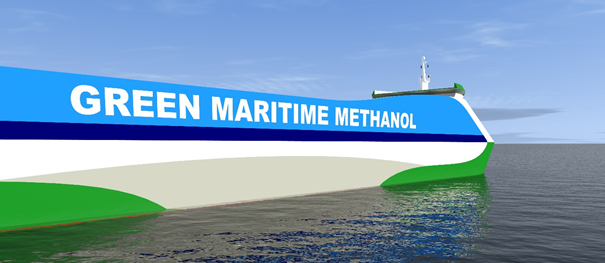
Green Maritime Methanol consortium presents six case studies of ships using methanol as a fuel
Rotterdam, 16 February 2021. As part of the Green Maritime Methanol project, the consortium presents the results of six case studies of ships using methanol as a fuel. The ships were evaluated with regard to technical and safety aspects, logistics of methanol as well as return on investment.
A variety of ships was analyzed comprising of a trailing suction hopper dredger, a hydrographic survey vessel, a port patrol vessel, an inland patrol vessel, a cable laying vessel and a general cargo vessel. For each of the vessels the shipowner together with a knowledge institute, a classification society, a shipyard, an engine supplier, as well as fuel and maritime service providers made a dedicated design. These designs were evaluated with regard to technical, safety, logistics and economical aspects leading to a comprehensive report.
From this study it can be concluded that conversion of ships towards methanol is a more complicated and costly operation than the newbuilding of vessels on methanol. The implementation of requirements for methanol at the first design stages will significantly reduce the cost for the implementation of a methanol system on board, including tanks and safety systems, compared to a conversion process.
It was also concluded that in view of the lifespan of about thirty years for commercial vessels an average replacement rate of 3.3% per year of an entire fleet continues to justify the search for cost reduction of ship conversions with regard to future emission targets. Modular design of vessels could also be an important step in reducing costs for possible future conversions.
From a technical, safety and logistic perspective the conversion of existing vessels towards methanol is feasible, however the financial implications of such a conversion might not always warrant such a decision. Especially for older vessels near the end of life, the investment for a major or minor conversion cannot be justified based on economic principles.
Even though there are still some serious issues that have not yet been solved, the partners in Green Maritime Methanol are convinced that methanol is an excellent candidate for the transition towards zero emissions for short sea shipping.
The final report can be downloaded directly via the following link: http://publications.tno.nl/publication/34637752/GPkj6y/TNO-2021-green.pdf
This project is supported by “TKI Maritiem” and the Dutch Ministry of Economic Affairs and Climate Policy.